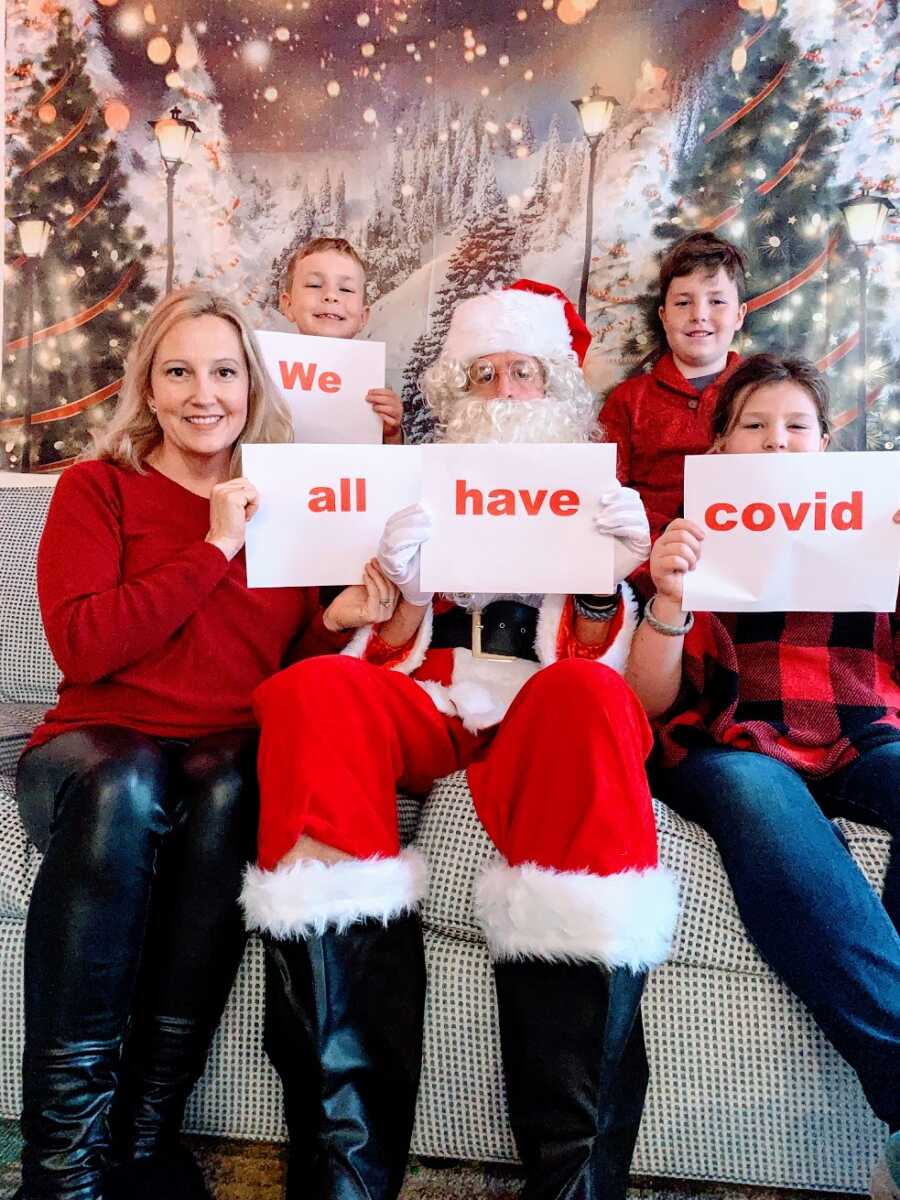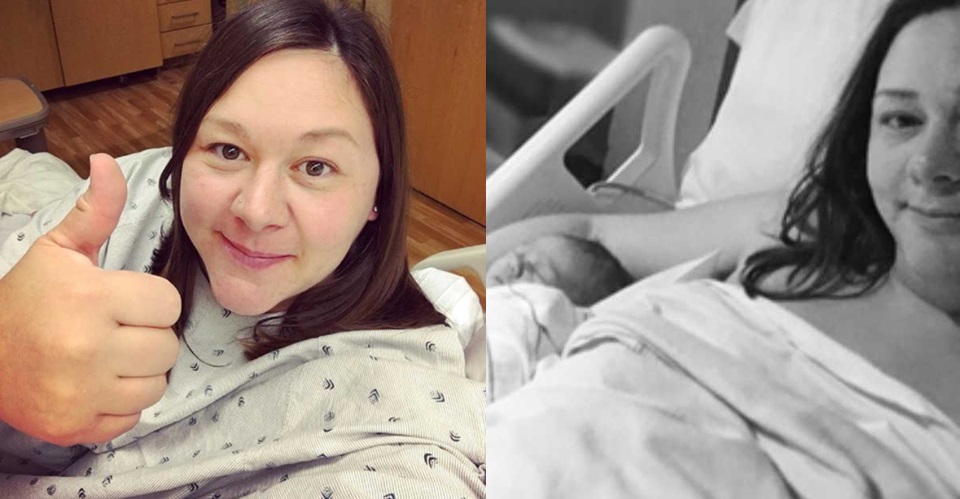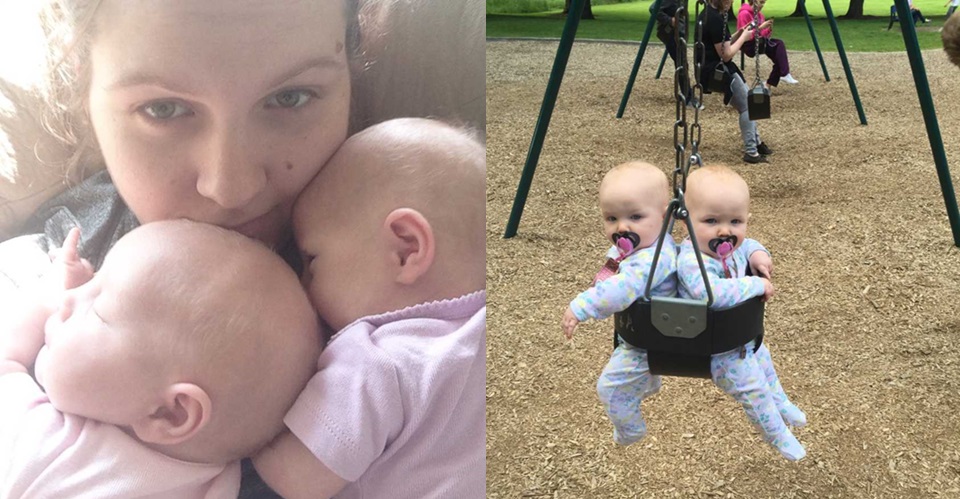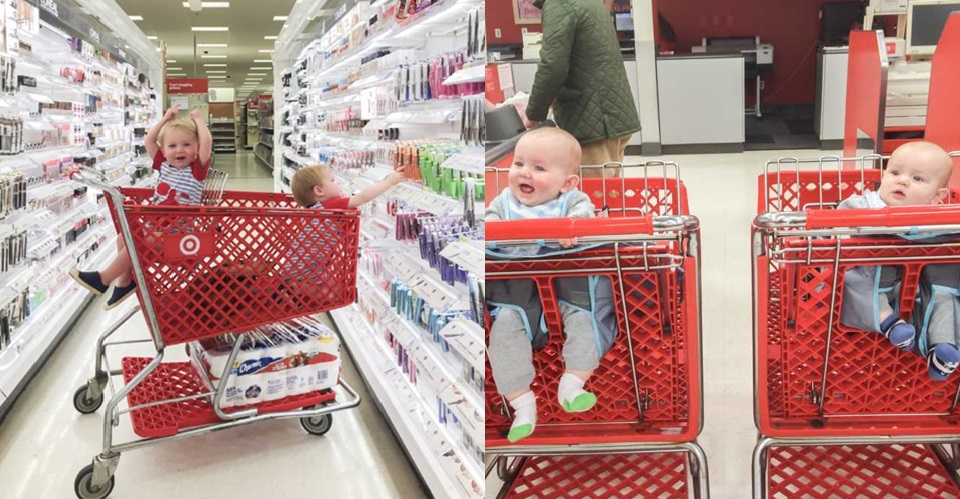Riley’s story began on April 23, 2019, during what we thought would be a routine scan. It was our third pregnancy, and we’d opted for the 3-month ultrasound and NIPT—not because we were worried, but because it gave us another chance to see our baby.
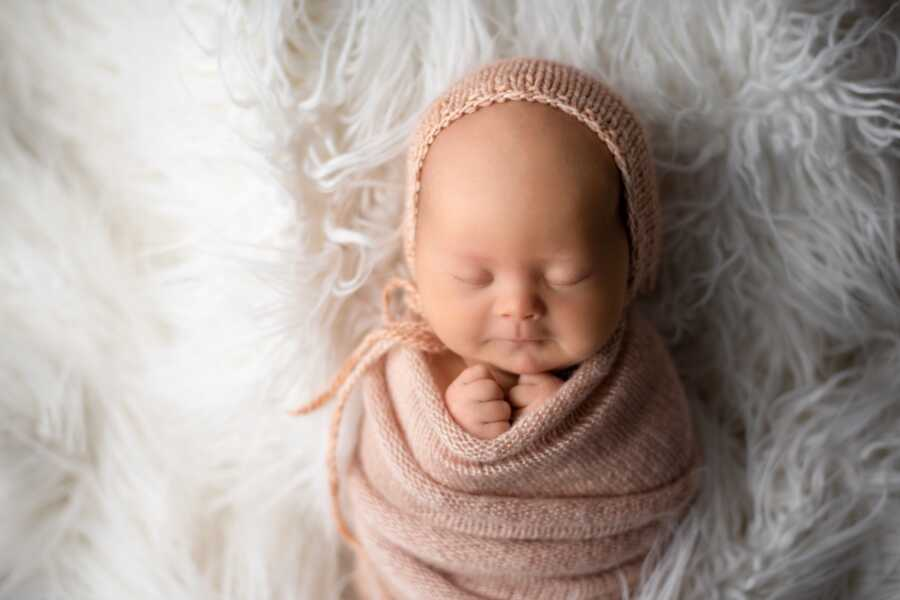
That day, the technician quietly stepped out and returned with the Maternal Fetal Medicine doctor. He gently pointed out an increased nuchal translucency measurement—something that can be associated with different trisomies. He recommended a more specific test—the maternit21—to determine if our baby was at high risk for any of them.
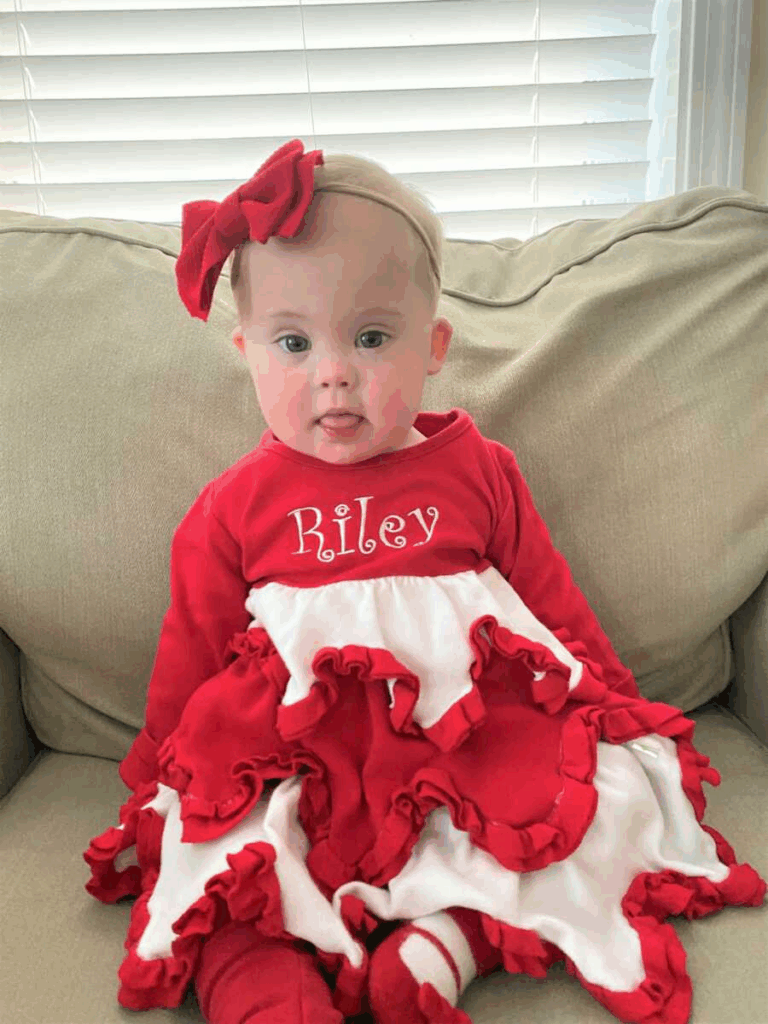
We agreed. A few days later, I got the call.
High risk for Trisomy 21. Down syndrome.
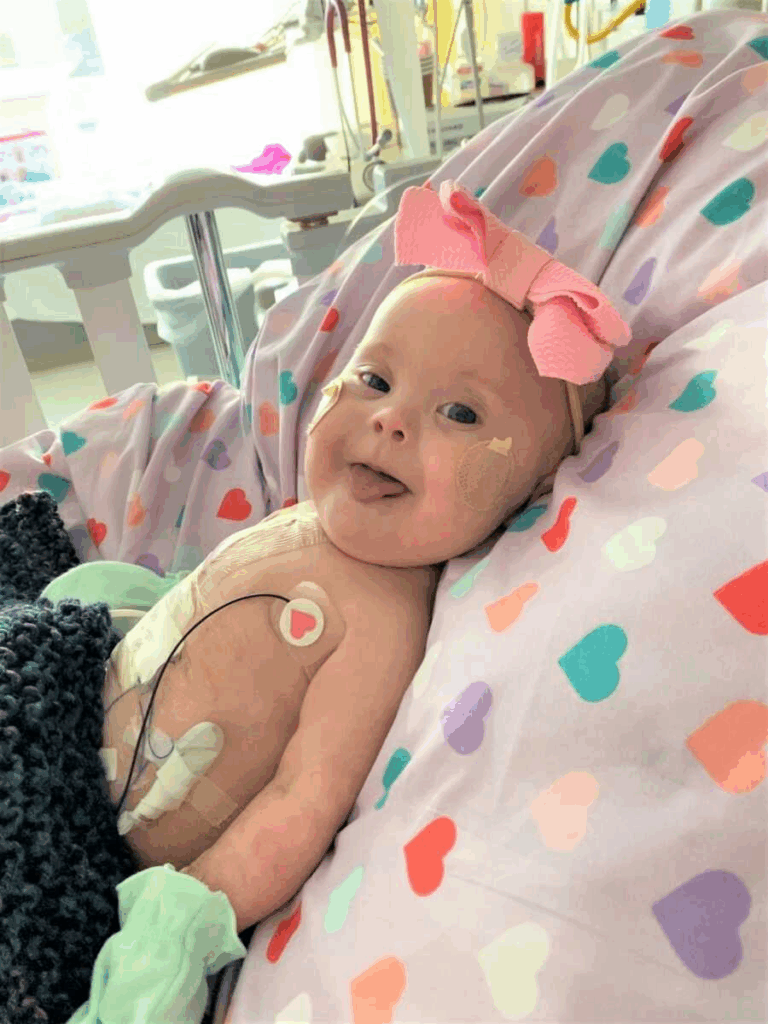
I remember that moment clearly. My breath caught in my chest. I cried—not because my baby wasn’t loved or wanted, but because of how the diagnosis was presented. The genetic counselor spoke as if it were tragic. As if my child’s life would be something to grieve.
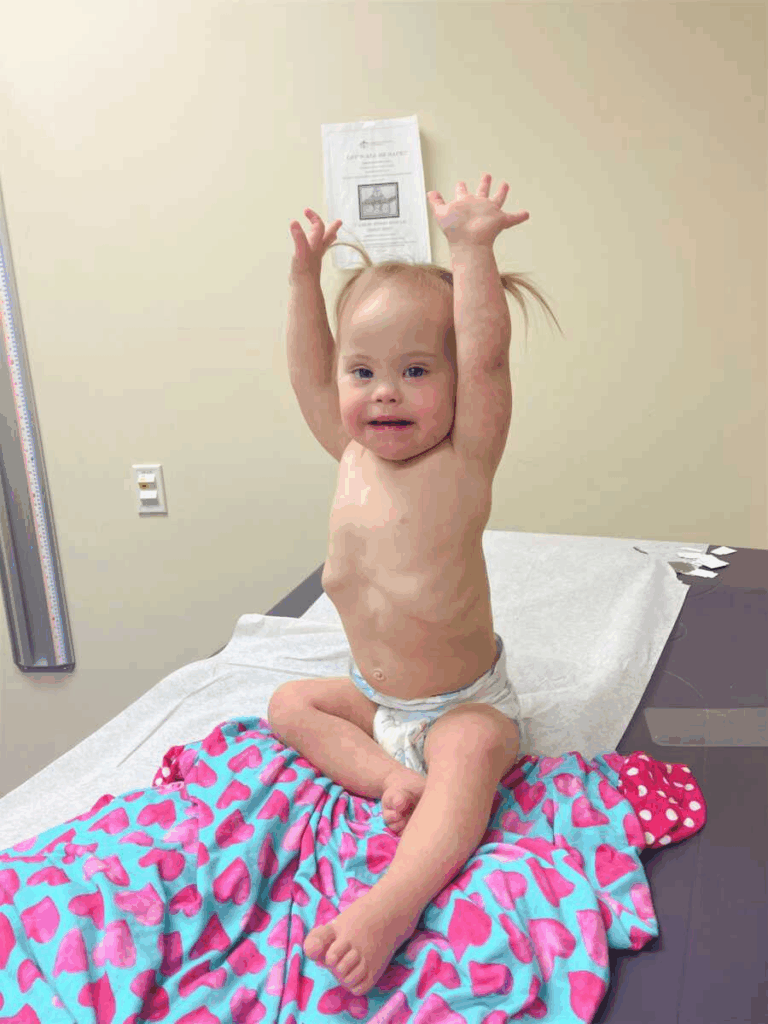
And then, more appointments. More specialists. I was asked if I wanted an amniocentesis or CVS—“in case you’d like to be sure and have plans to terminate,” they said.
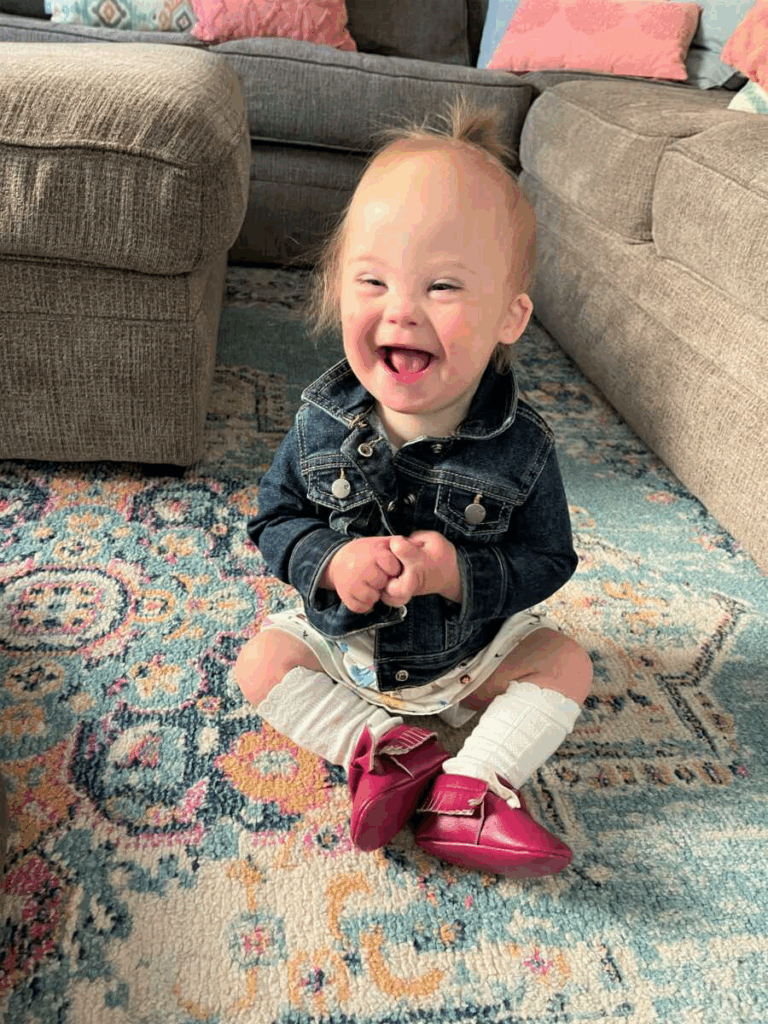
That suggestion stung. I looked at them and said clearly:
“We will have this baby, no matter what.”
It hurt to think they viewed a baby like mine as optional. Disposable. I have a teenage nephew with Down syndrome—one of the brightest lights in our lives. What if my sister-in-law had made a different choice? Would we be without his joy, his presence, his laughter? How could anyone look at him—or at Riley—and say, “This life isn’t worthy”?
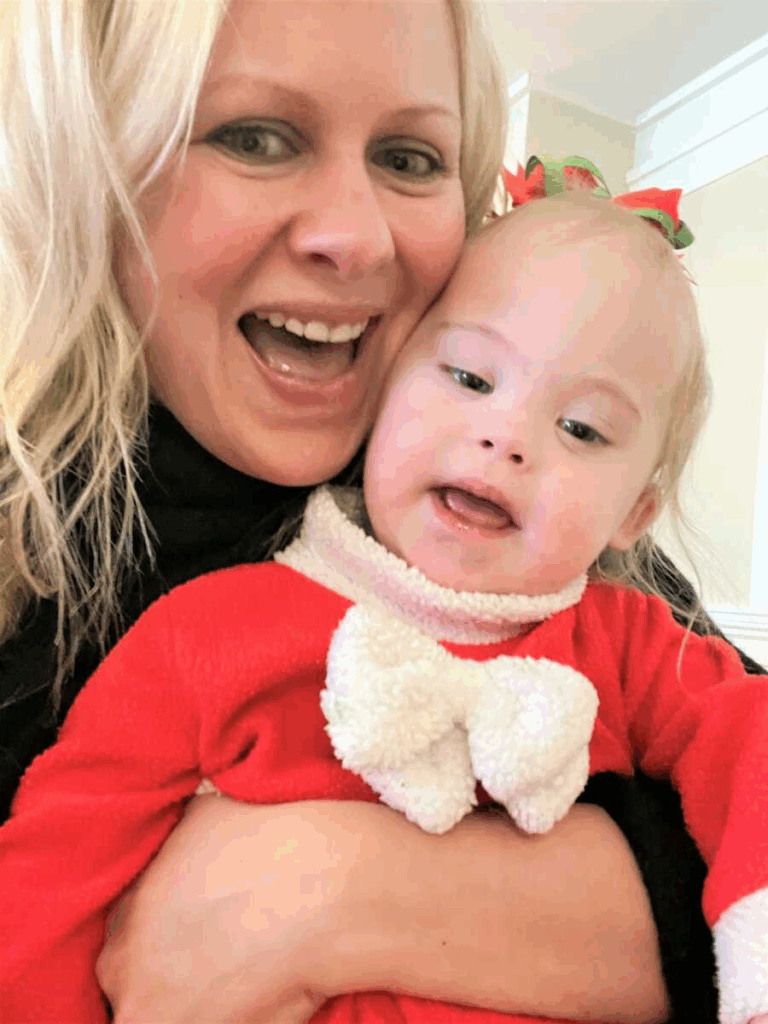
The rest of my pregnancy wasn’t easy. I had terrible morning sickness, developed high blood pressure, and was labeled high-risk. We did two fetal echocardiograms, but the results were inconclusive. Every appointment brought uncertainty.
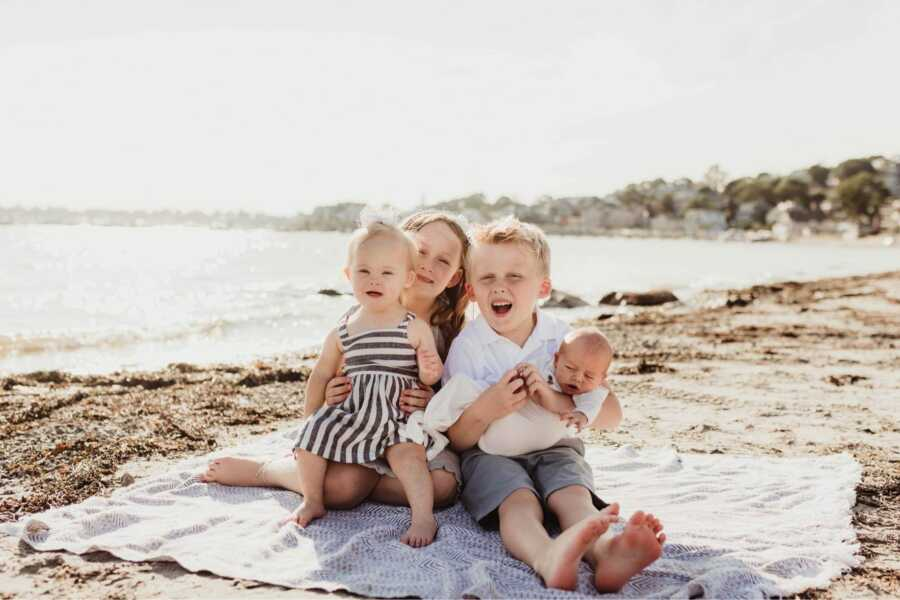
Then, on my 35th birthday October 10, 2019 I went in for another routine ultrasound. The doctor told me I had an umbilical vein varix, a rare complication that could increase the risk of stillbirth. I needed to be induced immediately.
At 12:15 a.m. on October 11, 2019, Riley was born.
She cried right away. I remember thinking, She’s here. She’s okay. But then her color turned gray. They rushed her to give oxygen, and she spent her first week of life in the NICU. That’s where we learned she had a congenital heart defect an AVSD that would require open-heart surgery. Doctors also pointed out features associated with Down syndrome.
I simply nodded.
“Yes, I know,” I told them.
“And it doesn’t matter. She’s perfect.”
Because she was. Is.
In February 2020, just four months old, Riley underwent heart surgery. It was terrifying, but she came through it like a warrior. And from that moment on, we’ve watched her step into her strength—one milestone at a time.
Despite being born early. Despite her diagnosis. Despite the muscle weakness.
Riley is a force.
She’s crawling. Babbling. Signing. Keeping up with her big brother and big sister in every way she can. She’s curious, fearless, determined. She’s exactly who she’s meant to be.
Yes, we know there will be challenges ahead. But I also know my daughter—and I know what she’s capable of. She’s already shown the world what resilience looks like.
We don’t fear Down syndrome in our home.
We celebrate it.
Riley has opened up a whole new world for us—one filled with more patience, more laughter, more depth, more joy. Her smile lights up every room. Her extra chromosome doesn’t define her, but it is part of what makes her extraordinary.
She is Riley.
She has Down syndrome.
And she is absolutely perfect just the way she is.
